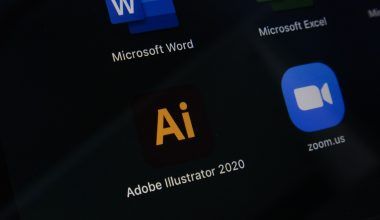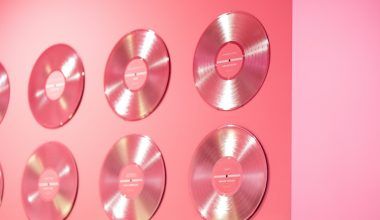When you pour your heart into creating music, it’s only fair to expect it to bring in some revenue. iTunes remains one of the most popular platforms for artists to showcase their work and earn from their talent. If you’re wondering how to monetize your single on iTunes to get paid, this blog has you covered. Let’s walk through the process, step by step, with practical advice to ensure your music not only reaches the masses but also brings in the earnings you deserve.
Why Choose iTunes to Monetize Your Single
iTunes has been a game-changer for independent artists. With millions of users worldwide, it offers an incredible platform to connect with listeners and make your music accessible. Unlike other platforms where earnings are based on streams, iTunes allows you to sell your single outright, giving you more control over your income. Additionally, Apple’s reputation ensures that your music is showcased on a trusted platform.
Step-by-Step Guide to Monetizing Your Single on iTunes
1. Create and Finalize Your Music
Before you monetize your single on iTunes, ensure your track is polished and professional. Listeners on platforms like iTunes expect high-quality audio. Invest in good production, mastering, and mixing services to make your music stand out. Remember, the first impression matters.
2. Choose a Distribution Service
To get your single on iTunes, you’ll need a distributor. Distribution services act as the middleman between you and platforms like iTunes. Some popular options include Deliver My Tune, CD Baby, and DistroKid. Compare their pricing, features, and services before making a choice.
3. Prepare Your Artwork and Metadata
Your single’s artwork plays a significant role in attracting potential buyers. Design a visually appealing cover that resonates with your music. Alongside, prepare metadata like your song title, artist name, genre, and release date. This information helps categorize your single on iTunes and makes it easier for listeners to discover your music.
4. Set a Competitive Price
Pricing your single appropriately is crucial. Research similar artists in your genre to understand how much they charge for a single. A competitive price can encourage more purchases while ensuring you earn a fair amount.
5. Submit Your Single to iTunes
Once your music and metadata are ready, submit them through your chosen distributor. They will handle the technicalities of uploading your single to iTunes. This includes encoding your track, ensuring it meets Apple’s quality standards, and making it available for purchase.
Strategies to Boost Your Earnings on iTunes
Monetizing your single on iTunes is not just about uploading it. You need to actively promote and engage with your audience to maximize earnings. Here are some proven strategies:
Social media platforms like Instagram, Twitter, and TikTok are powerful tools for promoting your single. Share snippets, behind-the-scenes footage, and stories about the creation of your track. Engage with your followers and encourage them to purchase your single on iTunes.
Create Pre-Release Buzz
Building anticipation can lead to higher sales. Announce your single’s release date weeks in advance and create countdown posts. Offer exclusive content or sneak peeks to keep your audience excited.
Collaborate with Influencers
Collaborating with influencers in your niche can help you reach a wider audience. Look for influencers who align with your brand and music style. Their endorsement can significantly boost your visibility on iTunes.
Optimize Your iTunes Page
Your iTunes page should be compelling and professional. Include a catchy description of your single and make sure your profile is updated. A well-maintained page reflects your dedication and can encourage listeners to support your music.
Understanding Revenue and Payments on iTunes
How Earnings Work
When you monetize your single on iTunes, you earn a percentage of each sale. Apple typically keeps 30% of the revenue, while the remaining 70% goes to you or your distributor.
Payment Schedules
Your distributor usually handles payments. They collect earnings from platforms like iTunes and transfer them to you. Payment schedules vary by distributor, so it’s essential to choose one that aligns with your preferences.
Taxes and Royalties
Don’t forget to account for taxes and royalties. Depending on your country, you may need to pay taxes on your earnings. Additionally, if you’ve collaborated with other artists or producers, ensure they receive their fair share.
Common Mistakes to Avoid
- Skipping Professional Production: Poor audio quality can drive listeners away.
- Ignoring Promotion: Simply uploading your single won’t guarantee sales. Invest time in marketing your music.
- Overpricing Your Single: Research the market to set a competitive price.
- Neglecting Metadata: Incorrect metadata can affect your single’s discoverability on iTunes.
Tools and Resources to Help Monetize Your Single
- Analytics Platforms: Tools like Apple Music for Artists provide insights into your sales and audience demographics. Use these to refine your strategies.
- Marketing Tools: Platforms like Canva can help you design promotional materials, while email marketing tools like Mailchimp can help you reach your fans directly.
The Emotional Impact of Monetizing Your Music
Monetizing your single on iTunes isn’t just about the money. It’s about validation. Knowing that people are willing to pay for your music reinforces the value of your artistry. It’s a reminder that your hard work and creativity matter.
Conclusion: Start Monetizing Your Single on iTunes Today
Monetizing your single on iTunes to get paid is an achievable goal with the right approach. From creating high-quality music to promoting it effectively, every step matters. iTunes offers a platform where your music can reach listeners globally while ensuring you earn for your efforts. So, don’t wait. Take the leap, follow these steps, and turn your passion for music into a sustainable career.
Now it’s your turn! Are you ready to monetize your single on iTunes and get paid? Start today and let your music take center stage.
For further reading, explore these related articles:
- What is a Music EP? Everything You Need to Know
- Music on Public Domain: A Treasure Trove for Creators and Listeners
For additional resources on music marketing and distribution, visit DMT Records Private Limited.






